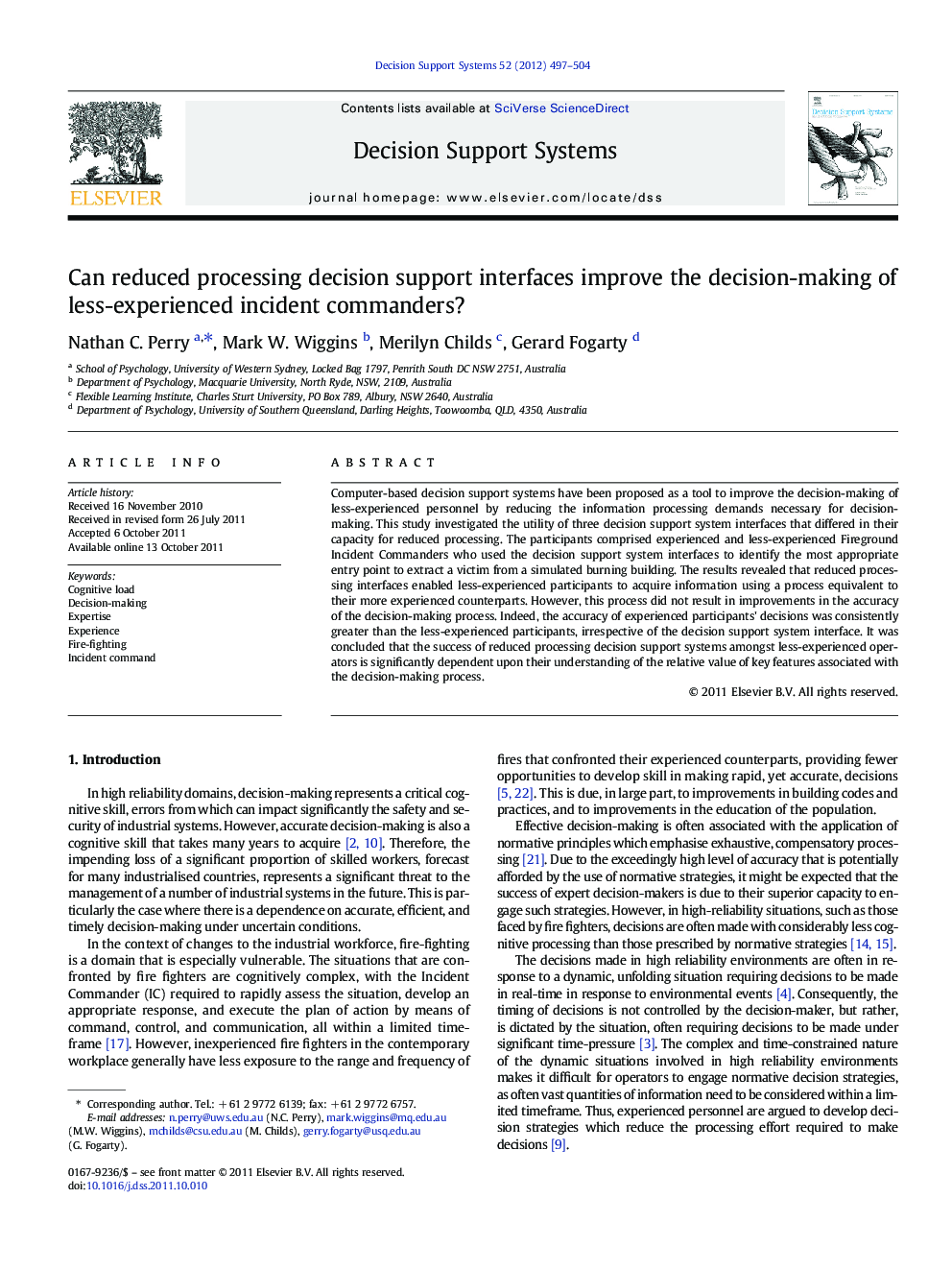| Article ID | Journal | Published Year | Pages | File Type |
|---|---|---|---|---|
| 553245 | Decision Support Systems | 2012 | 8 Pages |
Computer-based decision support systems have been proposed as a tool to improve the decision-making of less-experienced personnel by reducing the information processing demands necessary for decision-making. This study investigated the utility of three decision support system interfaces that differed in their capacity for reduced processing. The participants comprised experienced and less-experienced Fireground Incident Commanders who used the decision support system interfaces to identify the most appropriate entry point to extract a victim from a simulated burning building. The results revealed that reduced processing interfaces enabled less-experienced participants to acquire information using a process equivalent to their more experienced counterparts. However, this process did not result in improvements in the accuracy of the decision-making process. Indeed, the accuracy of experienced participants' decisions was consistently greater than the less-experienced participants, irrespective of the decision support system interface. It was concluded that the success of reduced processing decision support systems amongst less-experienced operators is significantly dependent upon their understanding of the relative value of key features associated with the decision-making process.
► Figreground Commanders' decisions with reduced processing interfaces were examined. ► Inexperienced commanders inclined to process information less selectively. ► Interface design can encourage selective processing and reduce cognitive demands. ► Utility of reduced processing interfaces is dependent on information quality.
